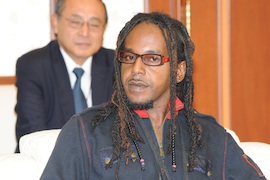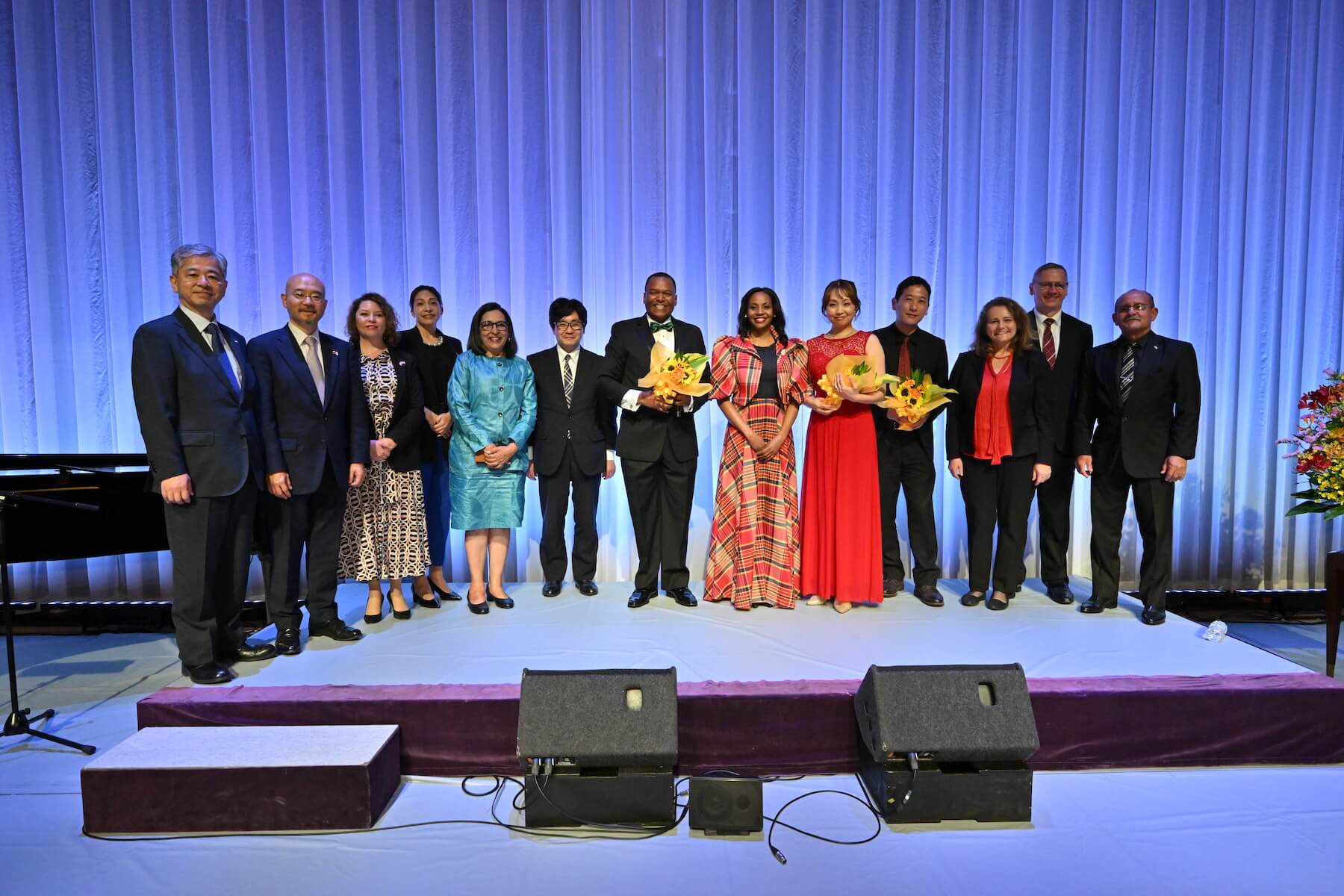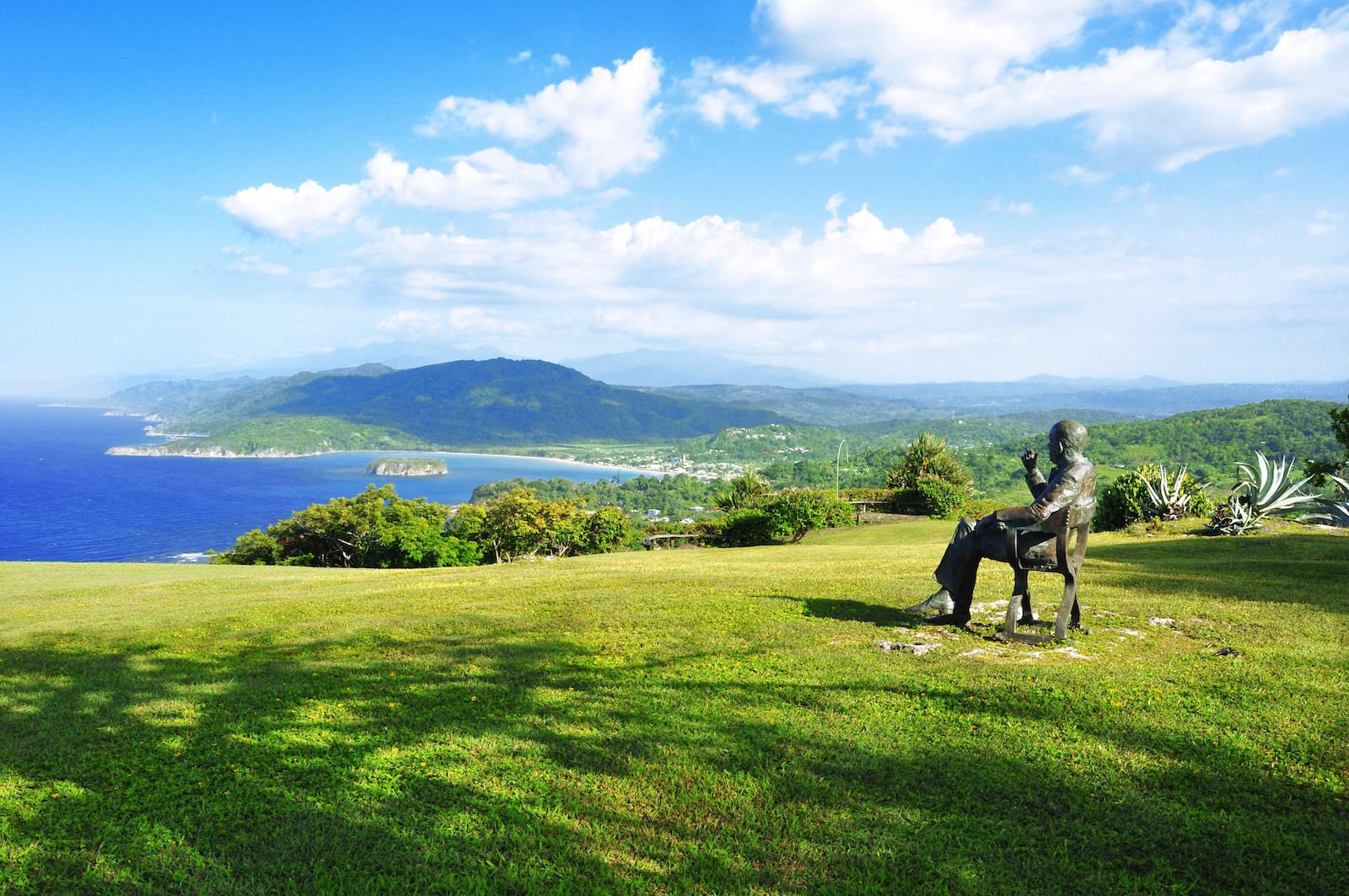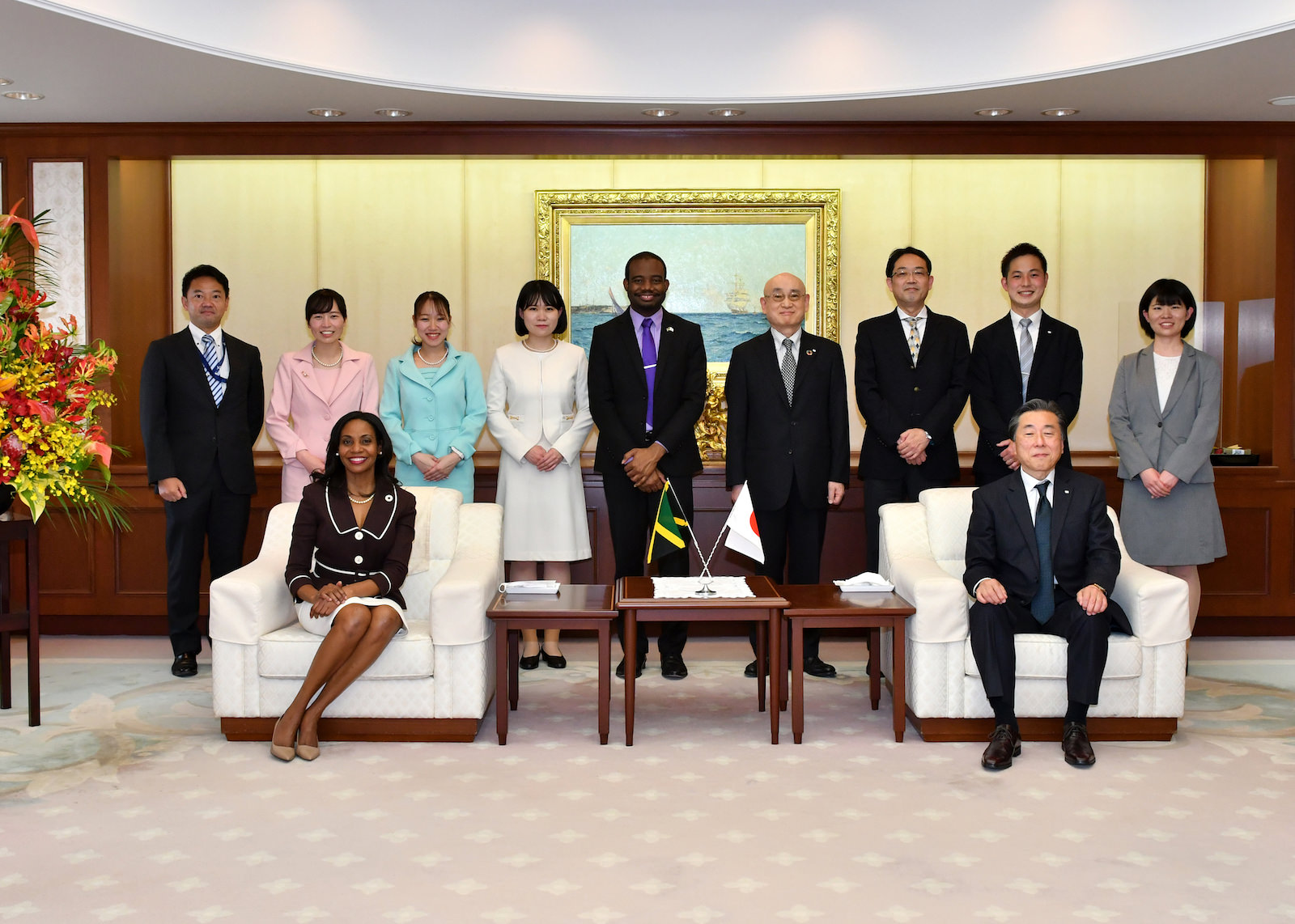“I don’t sing if I don’t mean it.”
 Abijah
AbijahMin-On: When you performed Get Up, Stand Up at the Jamaica Rocks premiere at Nakano Sun Plaza, it reminded us of Bob Marley’s concert at the same venue. Please share your impression of performing there.
Abijah: It was a wonderful experience to perform on the same stage as Bob Marley. Although I never met him, he is very special to me. In 2009, my album of Bob Marley covers, Sun is Shining, was number one in the Reggae chart in the US for 6 weeks, and it was then that some people in Jamaica started to call me “the next Bob Marley.”
I believe music is energy, and we absorb different kinds of energy from a performance. I felt the positive energy of Bob Marley on that stage. And although my voice was suffering from the effects of jet lag, exhaustion from the long trip, and the many rehearsals, I tried my best to project his positive energy through the performance. If you were reminded of listening to Bob Marley, that makes me very happy.
Min-On: Could you tell us about this performance of Jamaica Rocks?
Abijah: Jamaica Rocks was formed exclusively for the Min-On concerts. The group plays not only Reggae but performs a variety of Jamican music, including Mento, Ska, Rocksteady, Dancehall, as well as roots music, like Kumina, whose songs contain significant messages. We aimed to include as much as possible from the musical culture of Jamaica to create a unique performance for Japanese audiences.
Min-On: Could you share your thoughts on music?
Abijah: I believe the message of a song is very important. I don’t sing if I don’t mean it. Of course, I perform for the people to enjoy my music, but my music is intended to reach people, give people positive energy, inspire and encourage them. Bob Marley was probably not the best singer—indeed, there are better singers in Jamaica—but his energy and his message were so positive. It is more important to come to a concert and feel the positive energy more than just having fun. So I want people to leave the venue with a feeling of being encouraged, empowered and energized.
Min-On: Lastly, please share any comments on the Min-On Concert Association.
Abijah: The Min-On audiences comprised every generation from young to old. They were different to the typical reggae audience of people just having fun, and I felt that they listened with concentration, and thought about the music they were hearing. I also appreciated the professionalism and dedication of the Min-On staff and crews throughout this tour. After the devastating earthquake, the people of Japan are still struggling, and around the world there are many problems. Yet music can provide positive energy, inspiration and encouragement to people, something that governments and politicians struggle to do. That’s why it’s important to bring people together at a concert and unite through the power of music.
It was truly a great experience to work with Min-On to put on a concert as positive as Jamaica Rocks. We are all one people, and I believe that when we understand that there will be peace in our hearts, and then a peaceful world will be in our hands.






